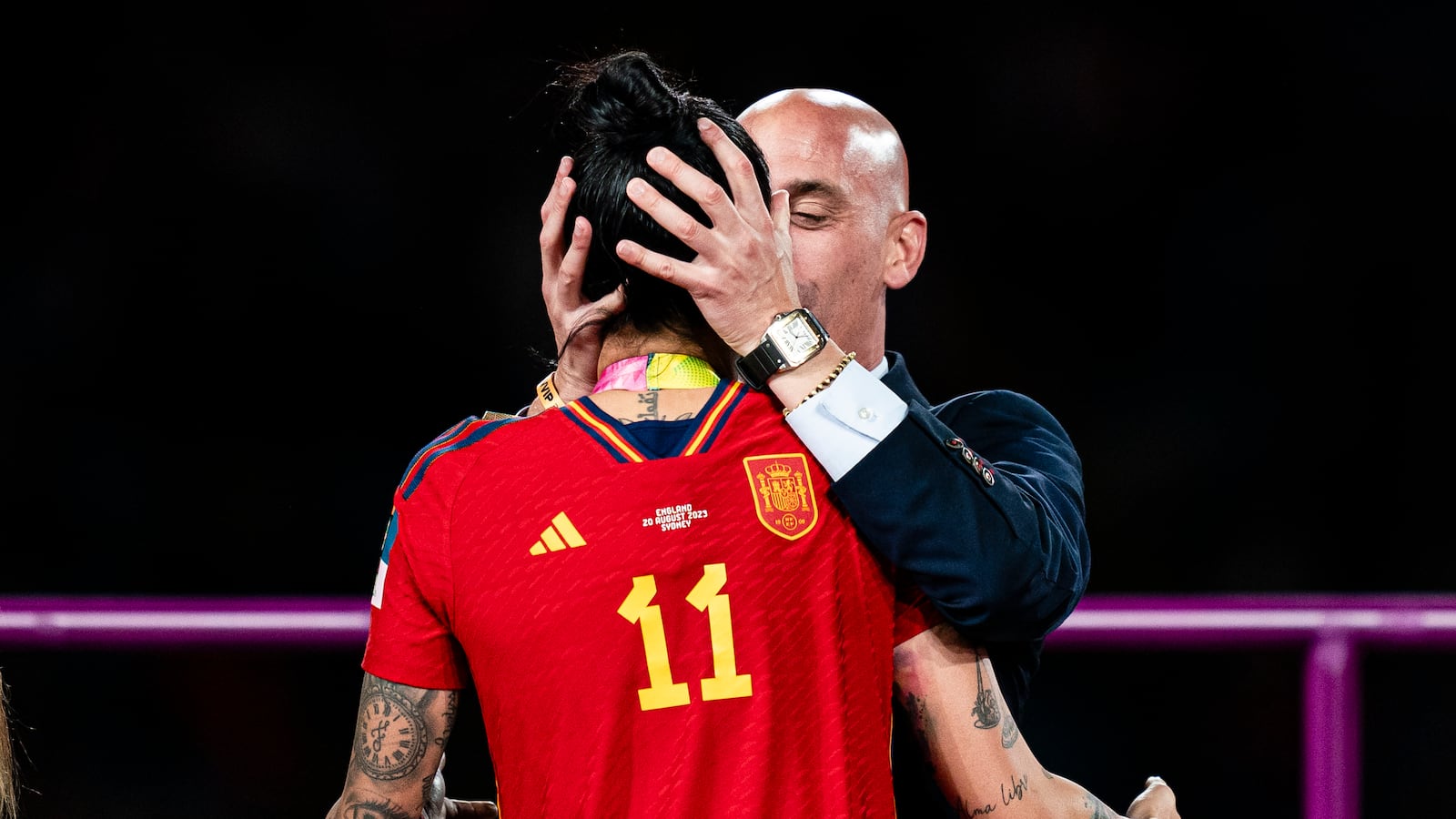Luis Rubiales, the scandal-roiled Spanish football federation president, told British television host Piers Morgan he would step down from his position in an interview that aired Sunday, exactly three weeks after forcibly kissing a female soccer player at a World Cup ceremony.
“About my resignation? Yes, I’m going to do,” he said on Piers Morgan Uncensored.
“You’re going to resign?” Morgan asked.
“Yes, because I cannot continue my work,” Rubiales replied.
Asked how he came to the decision, Rubiales said that his family and friends had counseled him to step down. “They say to me, ‘Luis, now you have to focus on your dignity and to continue your life, because if not, probably, you are going to damage to people you love.’”
The 46-year-old went on to say he wasn’t thinking only of himself, suggesting there were “third parties, very important” who were affected by his “attitude” in the matter.
Rubiales also sent a letter to the soccer federation on Sunday confirming his resignation, ESPN reported. In it, he explained that he didn’t want to jeopardize Spain’s bid to co-host the 2030 World Cup alongside Portugal, Morocco and Ukraine.
“There are powers that be that will prevent my return,” he wrote, according to the network’s translation. “I do not want Spanish football to be harmed by this disproportionate campaign [against me].”
He also said in the letter that he would step down as a vice president of UEFA, the governing body for European soccer.
Taking a parting shot at the “unconscionable persecution” he and his family had suffered, Rubiales added, “I have faith in the truth and I will do everything in my power to make sure it prevails.”
The soccer chief had previously insisted he was going nowhere. Five days after the Aug. 20 ceremony—in which he grabbed and kissed star midfielder Jenni Hermoso after Spain’s World Cup victory—he acknowledged he’d “made a mistake,” but vowed to “fight to the end.”
Last Wednesday, however, Hermoso made a formal legal complaint over the incident. Two days later, Spanish prosecutors, who were already investigating the matter, filed a lawsuit with Spain’s high court, accusing him of sexual assault and coercion.
The court has yet to accept the suit, at which point Rubiales could be formally charged.
He had already been placed on a provisional 90-day suspension by FIFA, which opened disciplinary proceedings against him last month. Had the governing body decided not to take further action against him, Rubiales could have resumed his post as early as the end of November.
His suspension threatened Europe and Africa’s burgeoning World Cup co-hosting bid, which he was helping to spearhead. Under the terms of his suspension, he was unable to attend UEFA meetings or vote next month on who would host the 2028 and 2032 European Championships, according to the Associated Press.
Spain’s national sports council also opened a misconduct case against him earlier this month. Investigators found that he’d committed a “serious” violation—but not a “very serious” violation, which would have led to a more prolonged suspension.
Rubiales’ actions have been met with widespread criticism from the Spanish government, athletes, and officials. More than 80 players, including all 23 members of the national women’s team, said they would not play another game under Rubiales’ leadership.
Late last month, the federation’s regional presidents banded together to demand Rubiales stand down, calling for a “profound and immediate restructuring” of their organization.
A number of organizations, including the players’ union and the Spanish women’s soccer league, also filed official complaints against Rubiales. Beatriz Álvarez, the league president, told the Associated Press last month that Rubiales was “finished.”
“He has dug his own grave with his acts and his words,” Álvarez said. “Whether it is because of the action of FIFA or the Spanish government, I am sure that Luis Rubiales won’t spend another minute as president of the Spanish federation.”





